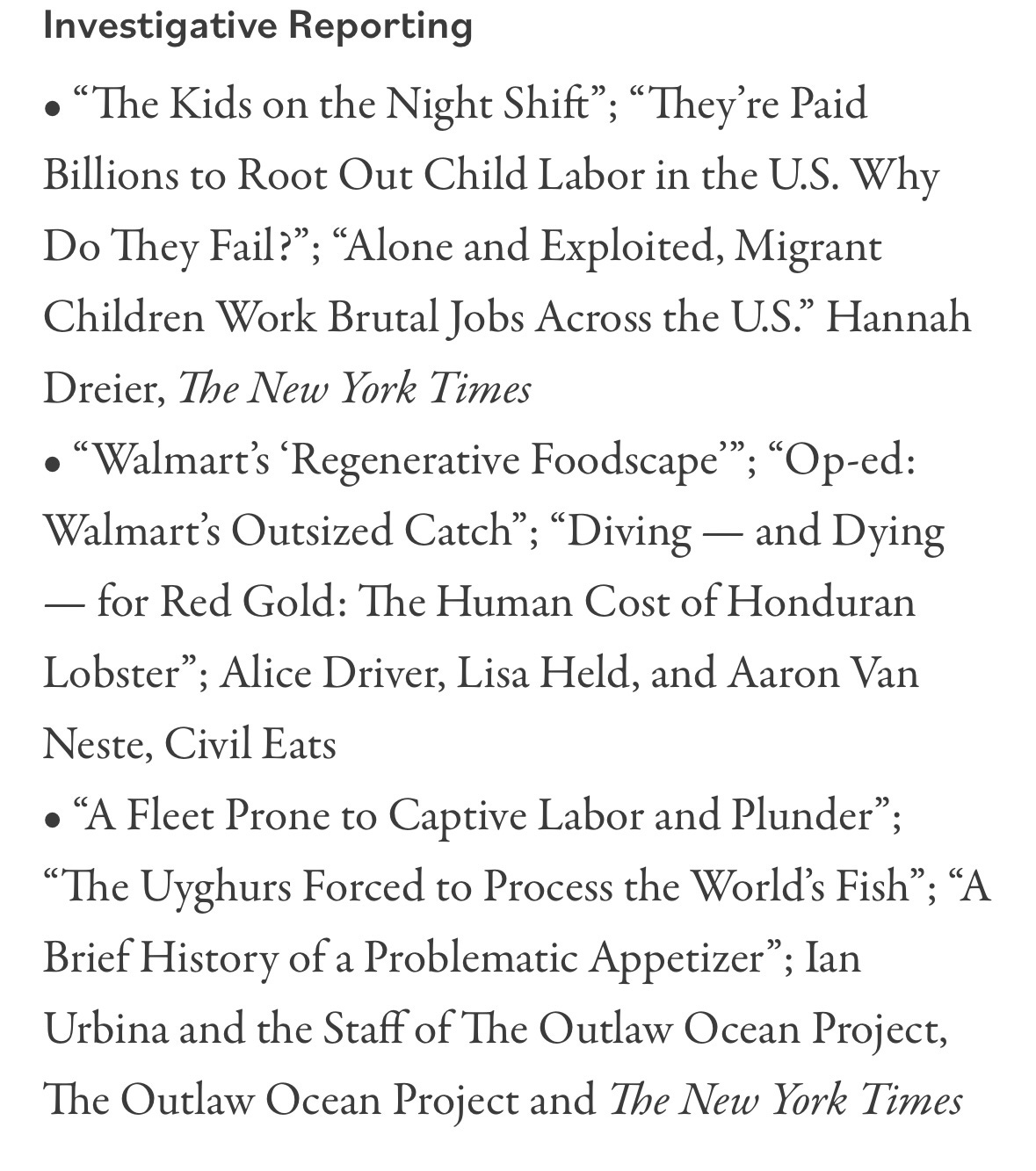Last week, I was nominated for my second James Beard award in the Investigative Reporting category alongside Lisa Held and Aaron Van Neste at Civil Eats. Here is the process I went through as a freelance journalist to report the article “Diving - and Dying - for Red Gold: The Human Cost of Honduran Lobster.”
I often become obsessed with a detail. Over the past decade, I have reported from Honduras, and on one of those trips a few years ago, I heard about indigenous lobster divers in the remote Gracias a Dios region. At the time, I didn’t know that divers played a key role in the lobster industry in the region because I had assumed commercial lobster was cage-caught. As a certified divemaster, I wanted to understand their work conditions because I was told many dived for 15 hours a day with little diving equipment. Such conditions led to decompression sickness, paralysis, and death. I wanted to understand how indigenous lobster divers fit into the global seafood supply chain.
I applied for funding to report the story and was rejected.
I pitched the story to several magazines to try to get funding before reporting the story. The most memorable response from an editor was: “Hi Alice, Thanks for getting in touch. I'm not sure exactly what the story is here? Best wishes”
I decided to report the story and asked longtime collaborator and photographer Jacky Muniello to join me. We’ve worked together for over a decade in high-conflict areas in Mexico and Central America. We have the incredible level of trust and communication required to do difficult and sometimes dangerous work.
We took on the cost and risk of reporting the story, hoping that after I wrote the story, I would be able to sell it to a magazine.
Our travel in Honduras involved two tiny planes, 14 hours on unpaved roads, and eight hours in a motorboat across the open ocean. Once we got to Puerto Lempira, Honduras, we reported the entire story from a boat.
After returning from Honduras, an editor randomly reached out to me, saying that he wanted to work with me at X publication. He liked the idea of the lobster story and sent me a contract. The pay was low, but I signed it. When I sent a draft of the story, the editor responded with a long, insulting email about the quality of my writing and reporting. Luckily, I have learned when to pull a story because, with a combative editor, a story is never going to be good.
I reached out to an editor at Civil Eats, a small but mighty publication, to discuss my lobster story. I hadn’t initially pitched the story to them because they publish stories focused on the U.S. However, because Walmart was involved in the lobster supply chain, my reporting fit into a larger Civil Eats investigation of Walmart’s supply chains. Civil Eats has a magnificent team, and editor Lee Van der Voo is hands down the best investigative editor I’ve ever worked with.
I continue to believe that a good story finds the right home, but in this media landscape, it takes a lot of work.
Alice




Love these insights. As a freelance journalist of over 10+ years, I have similar experiences re: combative editors + hurtful rejections, but never talk about them openly b/c it feels taboo!
Fantastic. Full marks for grit and 'nose'. Would have loved to aee it as a doco!